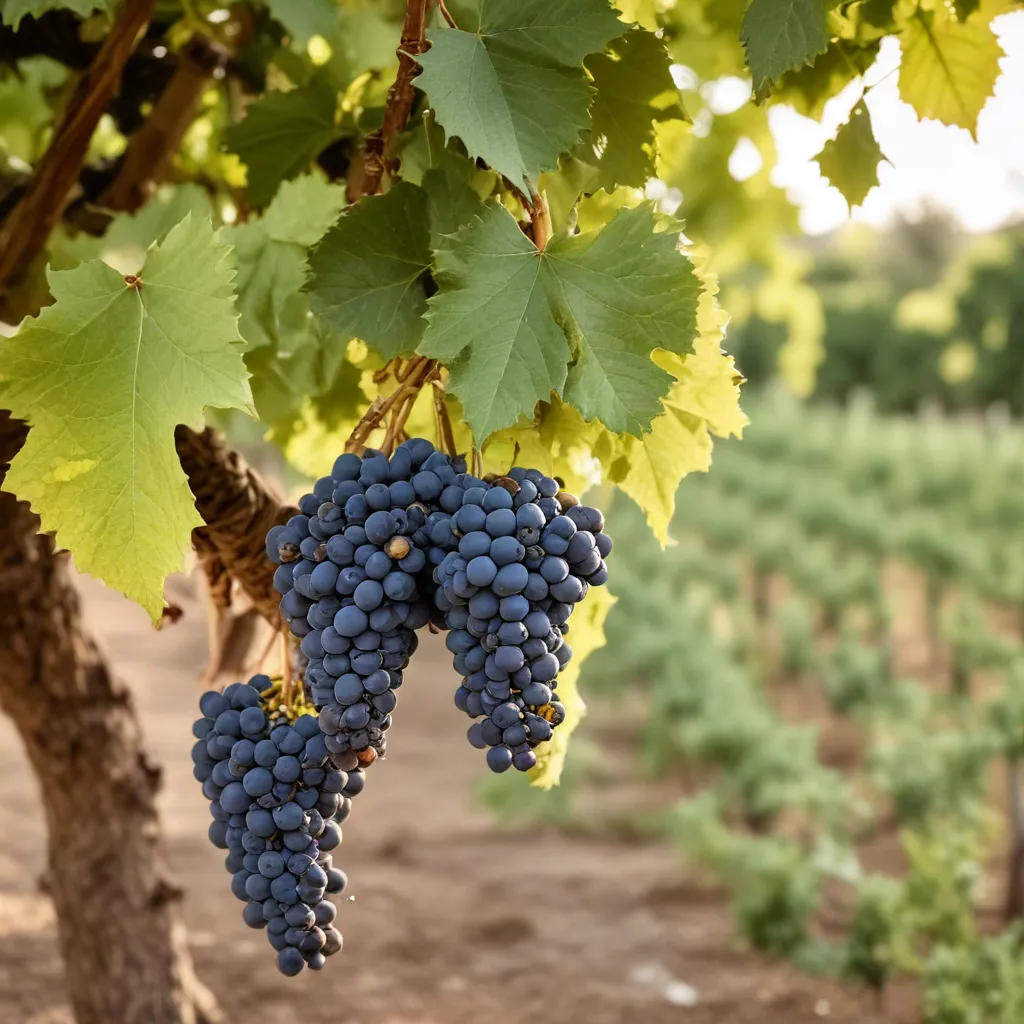
As a hospitality and wine expert at the Wine Garden Inn, I’m thrilled to explore the world of organic winemaking and its remarkable environmental benefits. In an era where sustainability has become a global imperative, the wine industry has emerged as a leader in championing eco-friendly practices that not only preserve our precious terroir but also offer consumers a healthier, more flavorful drinking experience.
Organic Viticulture: Nurturing Nature’s Bounty
At the heart of organic winemaking lies a deep respect for the land and its natural cycles. Organic vineyards eschew the use of synthetic pesticides, herbicides, and fertilizers, instead embracing a holistic approach that promotes biodiversity and soil health. By cultivating the vines using natural methods, such as composting, cover cropping, and integrated pest management, these vineyards create a self-sustaining ecosystem where the grapes thrive in harmony with their surroundings.
The absence of harsh chemicals not only protects the delicate balance of the vineyard but also ensures that the grapes themselves are free from synthetic residues. This, in turn, allows the true essence of the terroir to shine through, as the vines draw their nutrients and character directly from the earth. As one Spanish vintner explained, “We are always looking for a balance between wild and cultivated land in the Priorat, a life-long struggle that is well worth the effort.”
Biodynamic Farming: A Holistic Approach
While organic winemaking focuses on eliminating synthetic inputs, biodynamic viticulture takes sustainability a step further, embracing a more holistic and spiritual approach to vineyard management. Biodynamic winegrowers view their vineyards as self-sustaining ecosystems, where the health of the soil, plants, and animals are all interconnected.
Using specialized preparations and aligning their practices with the lunar calendar, biodynamic farmers strive to create a harmonious balance within their vineyards. This approach often includes practices such as burying cow horns filled with manure, applying specific herbal sprays, and ensuring the careful timing of various tasks to work in sync with the natural rhythms of the land.
The result is a vineyard that is not only organic but also vibrant, resilient, and capable of producing wines that truly capture the essence of their unique terroir. As one winemaker from Domaine Romanée Conti remarked, “Biodynamics is about finding the right balance between the cultivated and the wild – it’s a never-ending journey, but one that is essential for the health of our vines and the quality of our wines.”
Renewable Energy Powering Sustainable Wineries
Organic and biodynamic viticulture are just one piece of the sustainable winemaking puzzle. Forward-thinking wineries are also embracing renewable energy sources to power their operations, further reducing their carbon footprint and environmental impact.
From installing solar panels across their vineyards to exploring the use of wind turbines, these eco-conscious producers are taking concrete steps to minimize their energy consumption and reliance on fossil fuels. By generating their own clean energy, they not only reduce greenhouse gas emissions but also insulate their businesses from the fluctuations of the traditional energy market.
As Wine Garden Inn guest Shale Oak Winery exemplifies, this commitment to renewable energy can be seamlessly integrated with organic and sustainable farming practices, creating a harmonious and environmentally responsible winemaking ecosystem.
Conserving Water, Reducing Waste
Water conservation and waste management are two other critical components of sustainable winemaking. Organic and biodynamic vineyards often employ innovative irrigation systems and water-saving techniques to minimize their water usage, ensuring the long-term viability of their precious water resources.
In the winery, sustainable producers focus on reducing waste, implementing comprehensive recycling programs, and finding creative ways to repurpose byproducts. From lightweight glass bottles to the use of recycled materials in packaging, these wineries are continuously seeking ways to lighten their environmental footprint.
Consumer Trends: The Rise of Eco-Friendly Wines
As consumers become increasingly conscious of the environmental impact of their purchasing decisions, the demand for organic and eco-friendly wines has skyrocketed. Savvy wine lovers are not only seeking out wines that are better for their health but also those that align with their values of environmental stewardship and social responsibility.
Studies show that consumers are often willing to pay a premium for wines perceived as sustainable, organic, or biodynamic, recognizing the inherent value in preserving the delicate balance of our planet. Organic certification labels and regional sustainability programs have become essential tools for consumers to identify wines that meet their ethical and environmental standards.
The Business of Sustainable Winemaking
While the benefits of organic and sustainable winemaking are clear, the transition to these practices is not without its challenges. Wineries must navigate the complexities of certification, balance the increased costs of organic farming, and find ways to effectively communicate the value of their eco-friendly wines to consumers.
However, the long-term rewards of sustainable winemaking are well worth the investment. As climate change and environmental concerns continue to shape the global landscape, wineries that prioritize sustainability and environmental stewardship will be better positioned to thrive in the years to come.
Innovative technologies, such as precision viticulture and advanced sensor systems, are also aiding the adoption of sustainable practices, empowering winegrowers to make more informed decisions and optimize their operations. As the wine industry continues to evolve, these advancements will undoubtedly play a crucial role in the future of eco-friendly winemaking.
Ultimately, the rise of organic and sustainable winemaking reflects a broader societal shift towards environmental consciousness and a desire to protect the unique terroirs that give us the wines we love. By embracing these practices, wineries are not only safeguarding the longevity of their own businesses but also contributing to the preservation of our planet for generations to come.
As a hospitality and wine expert at the Wine Garden Inn, I am continuously inspired by the wineries and vintners who are leading the charge in sustainable winemaking. Their commitment to environmental stewardship and their unwavering pursuit of quality wines that truly capture the essence of their terroir are a testament to the transformative power of organic and eco-friendly practices.
